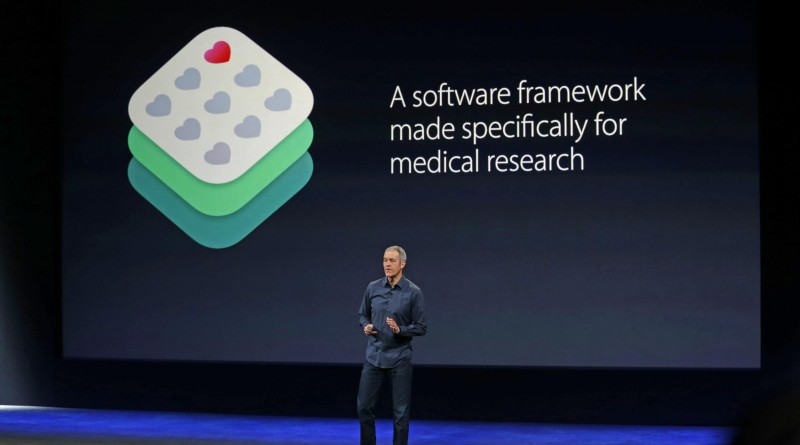Apple Is Getting Closer To Our Health
Apple presented radically new research programs and platforms for doctors and medical researchers at its recent Spring Forward event that took place on March 9, 2016.
Apple announced its innovative ResearchKit platform that can be used by medical researchers to record patients’ data. This application provides a special programmatic access for medical research and is developed in cooperation with leading medical centers of the United States.
ResearchKit turns your iPhone into a full diagnostic tool, allowing physicians to take advantage of health data generated by the iPhone and Apple Watch sensors.
The Apple representatives highlighted the mPower application from the University of Rochester focused on patients with Parkinson’s disease.

It allows people to retrace the symptoms of their disease with the accelerometer on their iPhone and other sensors. For example, the application can check how the signature changes; motor functions, i.e. how quickly someone can tap on screen; fluctuations in someone’s voice; and even compare patient’s gait and balance against a healthy person’s speed and posture (see images below).




In addition, Apple presented the following applications built by medical research organizations and universities:
GlucoSuccess is an app for patients with diabetes that was designed by MGH (Massachusetts General Hospital), which is the largest educational Hospital of Harvard Medical School.
MyHeart Count is an app for tracking cardiovascular diseases that was developed by Stanford Medical University.
Asthma Health is an asthma management app by Mount Sinai which is one of the largest and oldest medical centers in NYC, USA.
Share the Journey is an application for patients with breast cancer from Dana-Farber Cancer Institute.
Apple also turned public attention to the privacy and the open source code of these apps. Patients will be required to give consent to their data processing and to determine on their own what types of data they will share with physicians.
The open source code will definitely help expand the list of mobile health apps as well as allow developers to build mHealth applications for Android and Windows users, so they will be able to interact with the ResearchKit platform, too.
The sources: imedicalapps.com, gagadget.com
Featured image: ShutterStock

